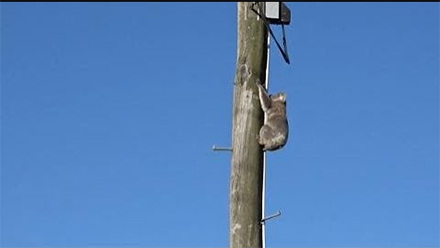Given the angst over the New South Wales SEPP plan and its impact on koalas and forestry and farming, the news this week that both sectors will be exempt must have come with a huge sigh of relief. Source: Bruce Mitchell
Now land zoned for forestry or primary production in regional NSW will not be subject to the new State Environmental Planning Policy.
Core rural zones in rural areas will be decoupled from the SEPP as new codes that protect koala habitat under the Local Land Services Act are developed over the next month.
This should vastly reduce red tape by removing the dual consent requirements facing farmers and foresters while immediately introducing enhanced protection for koala habitat in areas where more than 95% of development activity occurs.
The State Environmental Planning Policy (Koala Habitat Protection) 2019 (Koala SEPP) had the potential to make redundant the hard-fought land management reforms achieved in 2016.
That it was signed sometime on Friday 20 December 2019, two business days before Christmas, did raise some eyebrows.
The impact of the Government’s Koala SEPP 2019 and draft Koala Habitat Protection Guideline were very clear and immediate. The Koala SEPP 2019 would override the Land Management Code, thereby removing all flexibility.
What is came down to in very simple terms was that if a koala was found in a tree, then all commercial activity around that tree stopped.
Suggestions were even made that if a koala was found up a light pole the same laws applied.
The overriding problem was always that koalas were already protected.
As Australian Forest Products Association CEO Ross Hampton pointed out, the forestry sector takes koala conservation very seriously, which is why the Private Native Forestry (PNF) Codes of Practice already provide significant environmental protections.
He said that the new SEPP was always intended to apply to areas where large scale development is underway as our cities and towns expanded.
And that is exactly where it is needed, not where forest industries and farmers already operate under strict conditions to protect native species and fauna.
At least, and at last, some common sense has prevailed.
Meanwhile Western Australia this weekend faces possibly the oddest State election seen in this country, possibly ever.
There are already suggestions that Labor Premier Mark McGowan could win as much as 80% of the vote.
The Opposition leader Zak Kirkup effectively conceded defeat weeks ago.
Could the polls be wrong? They have been before.
Is Mr Kirkup playing a clever underdog card to garner sympathy votes. Politicians have done that before as well.
However, in this case, with the Government holding 41 out of 59 Legislative Assembly seat, those hoping for a miracle are probably going to be left disappointed.







